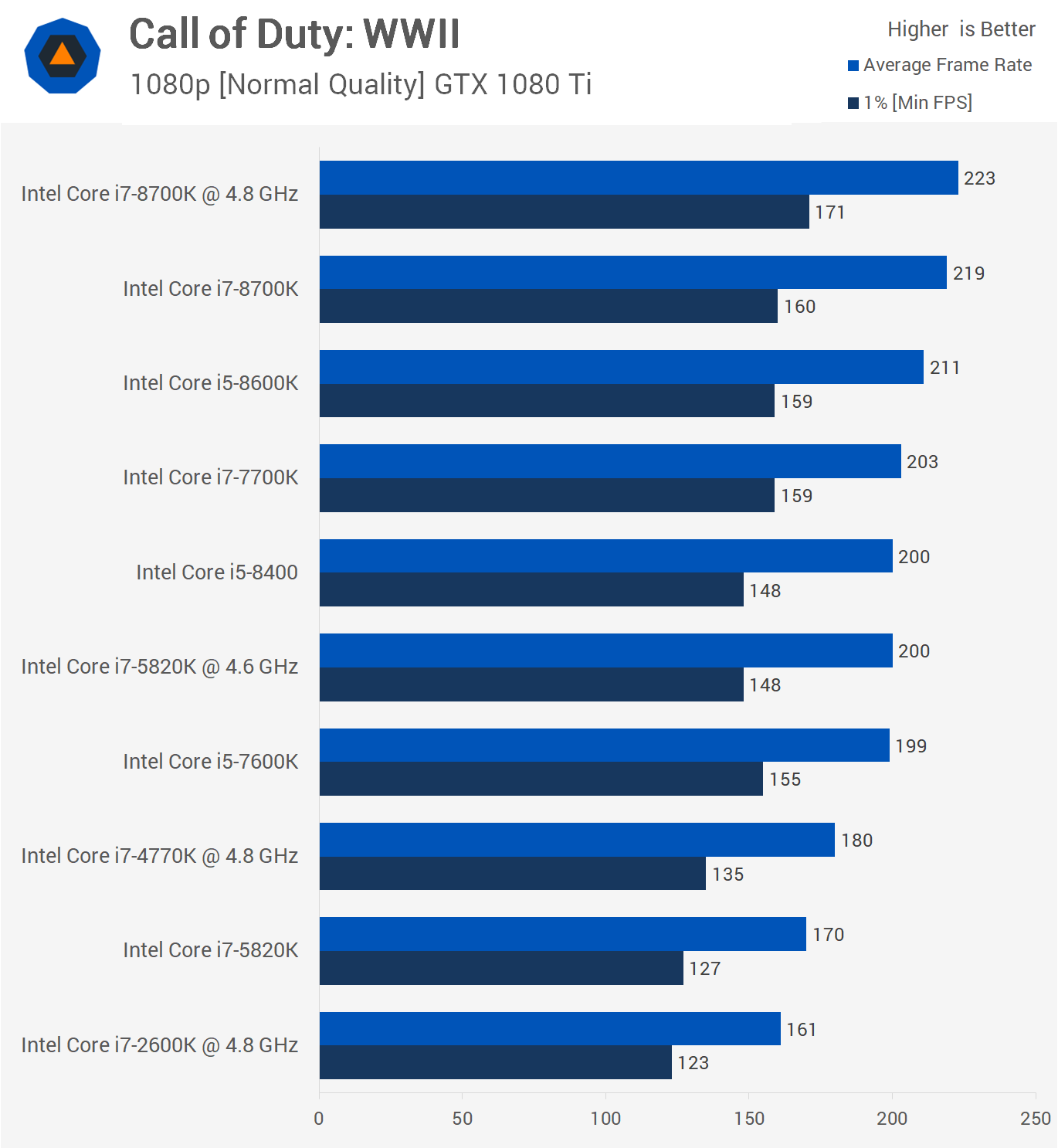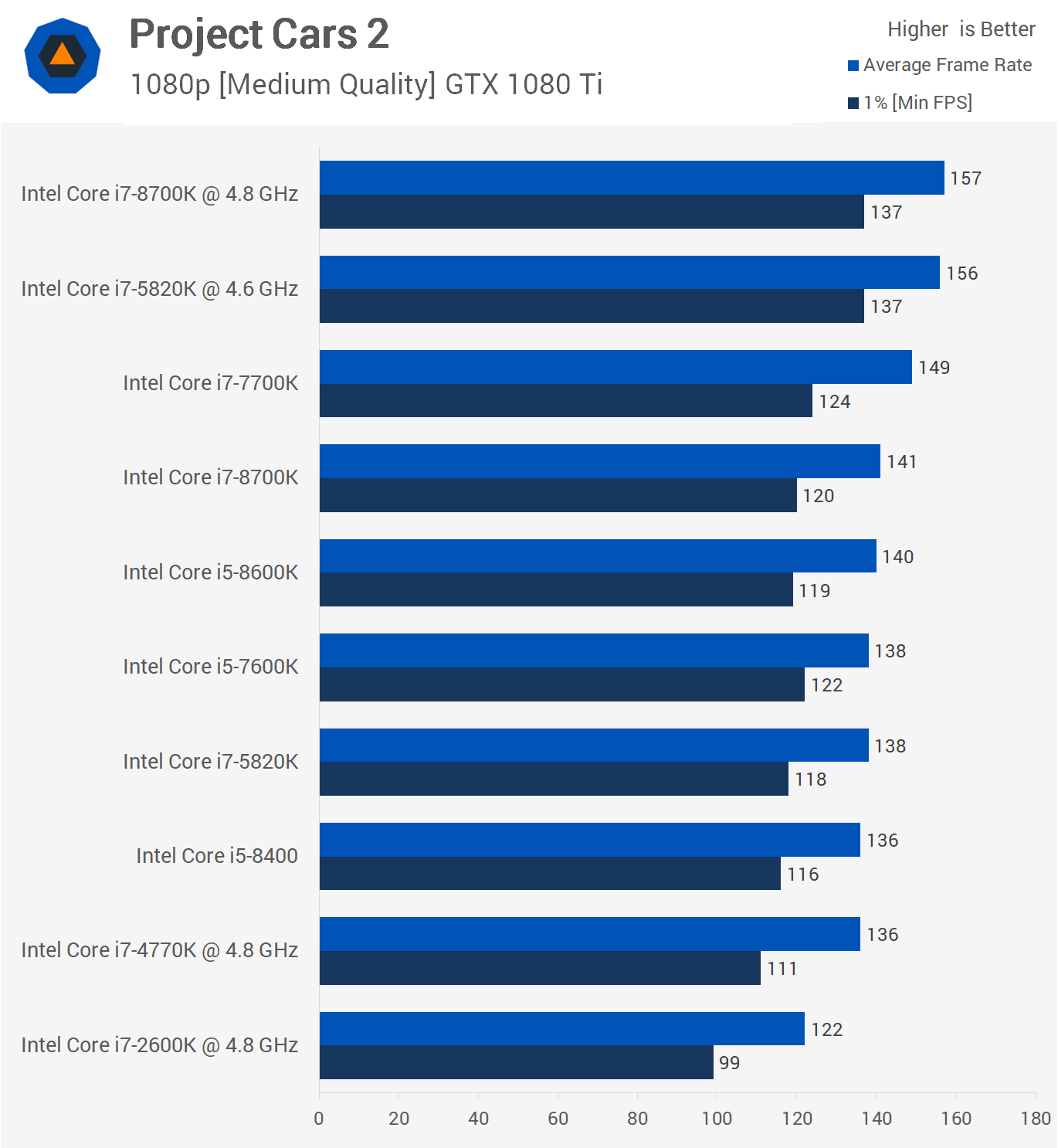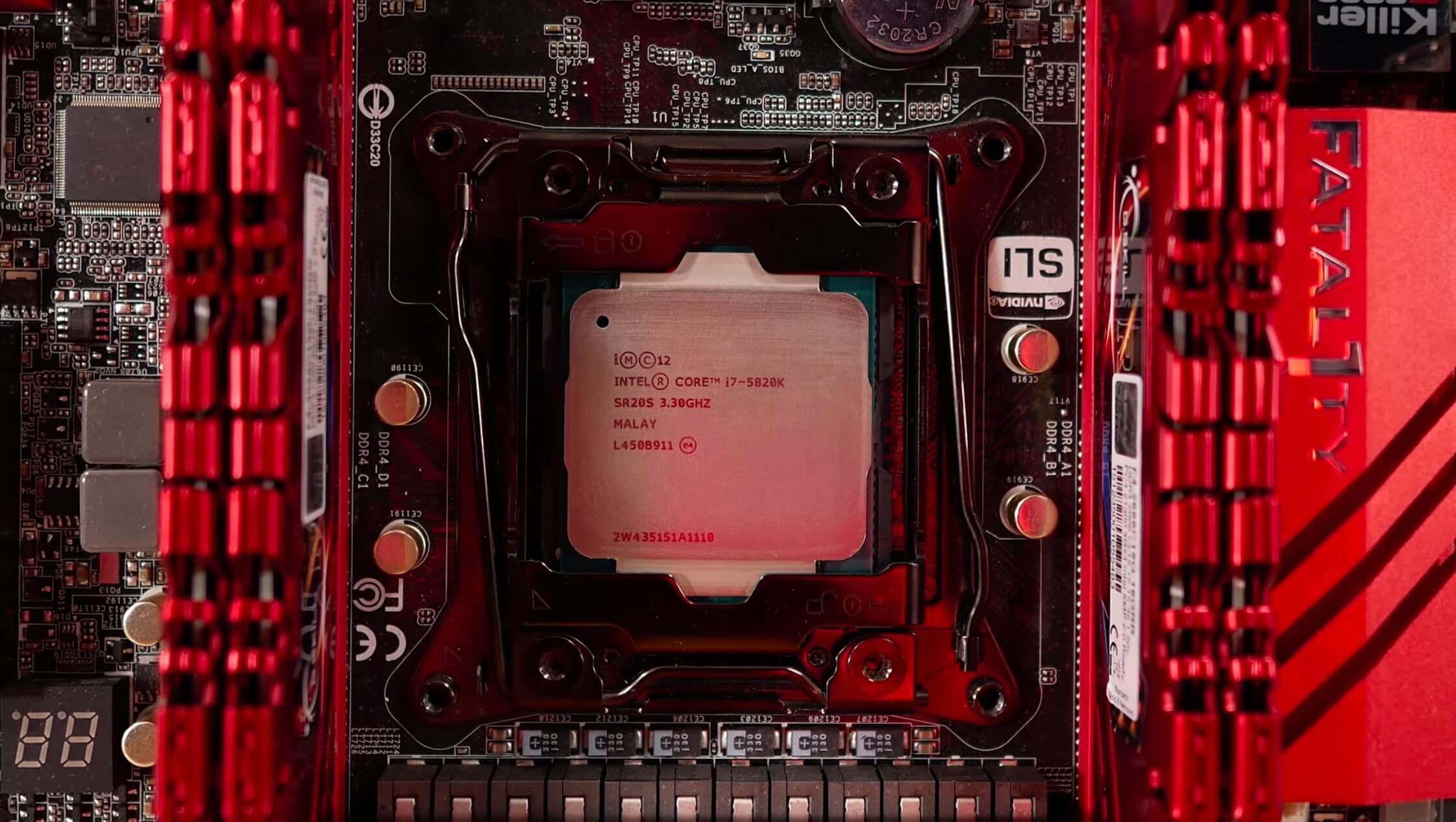Call of Duty WWII, Project Cars 2, Rainbow Six Siege

Moving on we have Call of Duty WWII and here we see when using the normal quality settings that the 5820K does quite well even before it's overclocked. Wound up to 4.6GHz, the chip is able to match the Core i5-8400 with an impressive average of 200fps and that's just 10% slower than the Core i7-8700K at 4.8GHz.

Interestingly, the margin actually grows with the extra quality settings in play and now the overclocked 5820K is 14% slower than the overclocked 8700K. That's not significant, particularly given that the 5820K is pushing over 110fps at all times.

At 1440p we only see a slight reduction in performance as even here we seem more CPU than GPU limited. The 5820K remains a little over 10% slower than the 8700K – here we see a 13% margin.

Project Cars 2 is the second to last game we're going to look at and we're again starting with the medium quality settings at 1080p. Unexpectedly, we found that the overclocked 5820K can max out the GTX 1080 Ti and therefore match the overclocked 8700K. This is interesting because on ultra quality, which obviously impacts CPU performance, we see a change (you'll see it in a moment as well).

With the ultra quality settings enabled at 1080p, the overclocked 5820K drops down and isn't much faster than its stock configuration. However, the overclocked 8700K remains strong here whereas the 5820K was 16% slower.

Then at 1440p we're now heavily GPU limited and all tested configurations come together with little variation seen between the CPUs. As a result, overclocking the 5820K is of little benefit here.

The last game we tested was Rainbow Six Siege and here we see a nice 18% performance boost for the 5820K once overclocked. Using the medium quality settings, the 5820K was 12% slower than the overclocked 8700K and with well over 180fps at all times that's clearly a good result for Intel's older six-core CPU.

On ultra quality, the GTX 1080 Ti starts to limit the performance of the overclocked 8700K and as a result the 5820K is now just 9% slower. Again we only saw frame dips to 150fps so an extremely smooth experience can be had with the 5820K.

As we often find at 1440p, even with an extreme GPU we're still mostly limited by the graphics card here and now the 5820K is just 5% slower than the 8700K. So if you're playing at 1440p or greater, you're not really going to notice a difference.
